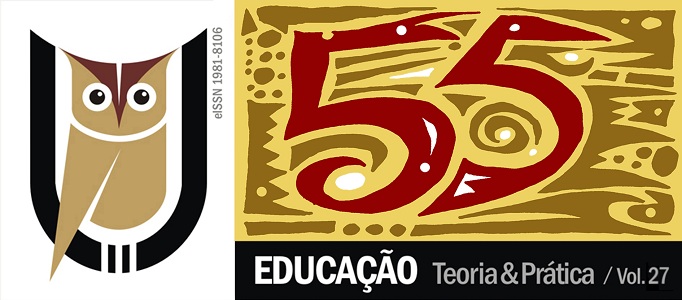THE TEACHING OF LAW IN BRAZIL: THE RESEARCH’ SOUNDS
DOI:
https://doi.org/10.18675/1981-8106.vol27.n55.p408-427Keywords:
Higher Education. Teaching. Law, Qualified Teaching.Abstract
The analysis of higher education demonstrates the need of improving pedagogic strategies for the teaching. In law school, judges, prosecutors, and lawyers on condition of a teacher with strong liberal character establish an emphasis on the technicality, with an absence of teacher identity. We use the systematic review as the methodology. We searched dissertations and theses produced in graduate programs in education and law in Brazil. It was not established time period as criteria linked to the topic of teacher education. 79 studies were found at Capes Database. Six studies were selected initially. Three categories were determined: the absence of pedagogical training, need for continuing education and teaching identity. We concluded that the formation of the law school is based on the general culture, in knowledge gained in college and personal experiences. Actions can be generated to improve the process of professor preparation. The results show us that law professor believes in continuing training of pedagogical character, which would facilitate teacher-student relationships in all aspects.Additional Files
Published
How to Cite
Issue
Section
License
Authors who publish in this journal agree to the following terms:
a) Authors assign copyright to the journal, with the work simultaneously licensed under the Creative Commons Attribution License that allows sharing of the work with acknowledgment of authorship and publication in this journal.
b) The policy adopted by the Editorial Committee is to assign copyright only after a period of 30 months from the date of publication of the article. After this time, authors interested in publishing the same text in another work must send a letter to the Editorial Committee requesting the release of the assignment of copyright and wait for a response.
c) This journal provides public access to all its content, since this allows greater visibility and reach of published articles and reviews. For more information on this approach, visit the Public Knowledge Project, a project that developed this system to improve the academic and public quality of research, by distributing OJS as well as other software to support the public access publication system to academic sources. The names and email addresses on this website will be used exclusively for the purposes of the journal and will not be available for other purposes. This journal provides open any other party  This work is licensed under a Creative Commons License
This work is licensed under a Creative Commons License











